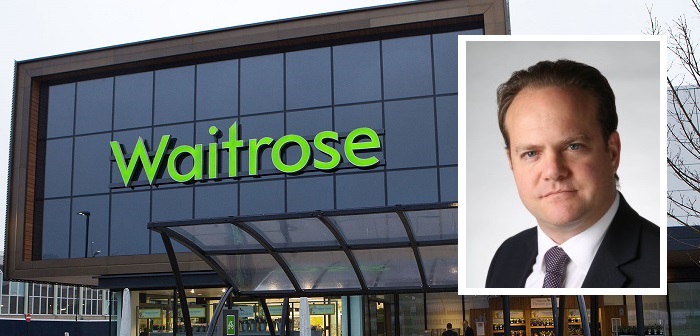Waitrose has announced it is reducing its reliance on South American soya, claiming to be the first UK retailer to introduce “responsibly sourced non-GM soya” for animal feed from Europe.
The retailer recently took its first shipment of soya grown in the Danube Region of Europe as part of a planned move away from South American soya, a step which it says will lower the risk to its supply chain as demand for soya from the developing world increases.
“This fits perfectly into our strategy to improve our supply chain security by sourcing animal feed from raw materials grown at home or within the UK and Europe,” said Waitrose managing director, Rob Collins (pictured above).
Waitrose said it was now working closely with the Danube Soya Producers Association, a group made up of European soya growers, millers and end users, an initiative which drew an immediate welcome from the Soil Association’s Policy Director, Peter Melchett.
“This is a very important development,” he said. “GM soya from Latin America is linked to rainforest destruction, so sourcing from the Danube Region and using more UK-grown protein crops, is good for the climate, good for UK farmers, and good for consumers.”
The new sourcing move by Waitrose, however, is just one part of the company’s plan is to source livestock feed raw materials closer to the UK than has previously been the case.
As a result, in the ruminant supply chain (beef, lamb and dairy) Waitrose suppliers are now using clovers and other forage proteins to replace imported soya. With monogastric livestock (such as chickens, ducks and pigs), soya alternatives such as faba beans are being trialled as a long term soya replacement.


